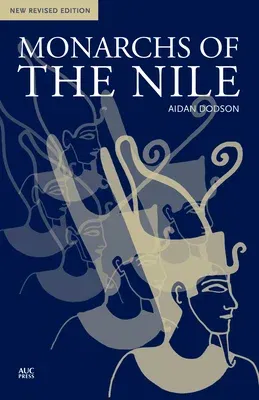For over three thousand years, the ancient Egyptian monarchy lasted in a
recognizable form, with the king as its central figure, the supreme head
of the administrative, religious, political, and military state. Not
merely a worldly leader, he was the chief link between the human and the
divine, himself the physical offspring of a divine god. Monarchs of the
Nile is a vivid and engaging account of the lives and times of some of
the more significant occupants of the Egyptian throne, from the
unification of the country around 3000 BC to the extinction of native
rule just under three millennia later. Some, such as Thutmose III, had a
major impact on their time, and were remembered by their own people
until the very civilization collapsed. Others, such as Tutankhamun, were
soon forgotten by the Egyptians themselves, only to burst into popular
culture thousands of years after their deaths, as a result of the labors
of modern archaeologists. Still more remain unknown outside the small
circle of professional archaeologists, but led lives that call out for
wider dissemination. Drawing on two further decades of research since
Monarchs of the Nile was first published in 1995, Aidan Dodson provides
a mix of all three categories, bringing together in highly readable form
a compelling view of Egyptian kings and all their range of
achievements.

